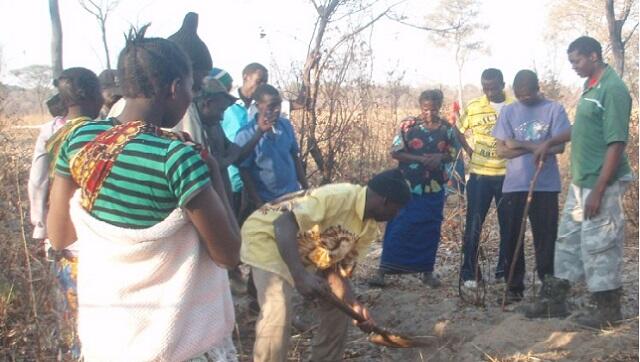
Sustainable Harvesting Guidelines of Devil’s Claw
ITC developed sustainable harvesting guidelines for Devil’s Claw in Zambia, a training manual aimed at Zambia’s Devil’s Claw suppliers.
Devil’s Claw is an indigenous plant to Southern Africa. The plant got its name from its hook-shaped fruit which is use for medicinal purposes. It contains active ingredients with analgesic and anti-inflammatory properties, and thus Devil’s Claw is used to treat gastro-intestinal diseases, rheumatism, and many varieties of muscular pains.
Rapid growth in the trade has provided an important source of income diversification for rural communities in southern Africa. In many regions where Devil’s Claw is naturally found, low rainfall hinders other farming activities. Exports of Devil’s Claw have generated cash income, especially among women who are its primary harvesters.
In recent years, concerns have been raised on the sustainability of trade in Devil's Claw. Wild harvest is unsustainable if all the plant’s roots are harvested, including the primary tubers required for the plants regrowth. Sustainability is difficult to assess and monitor given the large and fragmented species distribution.
In Zambia, these concerns have been exacerbated by reports of illegal exports to Namibia, where dried products are mislabeled as Namibian country of origin products. In March 2012, the Zambian government placed a ban on the harvesting and exporting of Devil’s Claw while a regulatory framework was established.
The sustainable harvesting guidelines for Devil’s Claw draws on lessons from the successful industry in Namibia. With this manual, a series of training workshops were delivered to harvesters in Sesheke, an area rich in Devil’s Claw. Participants developed skills in sustainable harvesting of Devil’s Claw as well as practical training in processing and drying techniques, internal inspection and certification requirements.
Zambia lifted the trade ban in May 2013. Furthermore, the Zambian Forestry Department are currently considering sponsoring ITC's trained harvesters to continue delivery on sustainable harvest training using ITC’s training manual.



